How To Use Apple Cider Vinegar For Acne & Things To Consider
Safe ways to include this vinegar in your skin care regimen and reap its many benefits.
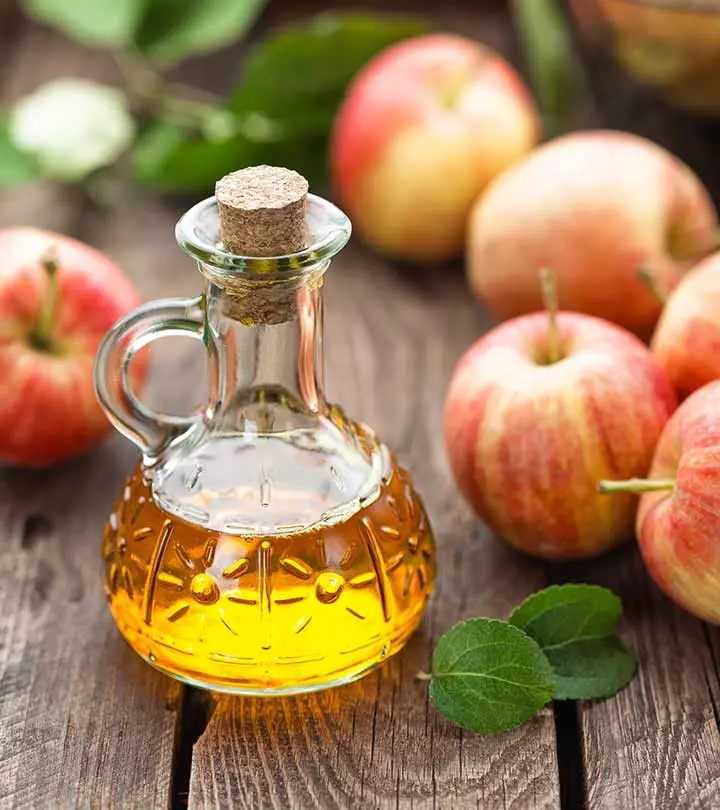
Image: iStock
Apple cider vinegar is beneficial for improving your gut health and may help with weight management (1). However, many people rely on apple cider vinegar for acne management, and it is also a popular home remedy. While there are not enough scientific data to prove its efficacy. But, those who have tried the remedy claim that it can soothe your skin and heal acne inflammation. This article discusses the benefits of apple cider vinegar and how to use it on your skin. Keep reading.

In This Article
Is Apple Cider Vinegar Good For Acne? Are There Any Benefits?
There hasn’t been enough research to prove that ACV helps in acne treatment. But the good news is, we have gathered some evidence that shows it might be useful in combating the bacteria that causes acne.
Vinegar is extremely effective in killing many strains of bacteria. Although there aren’t many studies to show that apple cider vinegar can kill the strain of bacteria that causes acne, the organic compounds found in the vinegar are found to possess certain properties. Let’s take a look:
1. It May Kill The Acne-Causing Bacteria
Two separate studies published in Applied Microbiology and Biotechnology and the International Journal of Cosmetic Science claim that acetic acid, lactic acid, citric, and succinic acids can kill Propionibacterium acnes or P. acnes, the acne bacteria (2), (3). Apple cider vinegar contains all these acids and also malic acid (4).
2. It May Help Reduce Acne

The lactic acid present in ACV may help reduce acne. A study published in the Indian Journal of Dermatology, Venereologyi A branch of medicine dealing with the study of treatment of STDs (sexually transmitted diseases). , and Leprologyi A branch of medicine dealing with the study of diagnosis and treatment of leprosy. found that people who applied a lotion containing lactic acid on their faces experienced a reduction in acne (5).
Grace Jennings, a YouTuber, shared her journey of dealing with acne and how she successfully improved her acne using apple cider vinegar. She said, “It cleared my acne. My skin has gotten cleared. I cannot guarantee that it will clear your acne, but I’m just telling you it worked for me, so it might work for you (i).”
3. It May Reduce The Possibility of Scars
Apple cider vinegar may help in reducing the scars left behind once the acne is healed. Many organic compounds help in this process. Applying acid directly on your face involves a process called chemical peeling. When done with succinic acid, chemical peeling suppresses inflammation caused by acne (6).
Lactic acid improves the skin condition of people who have acne (7), (8). Since apple cider vinegar contains all these acids, it may help in acne scar fading once the acne is healed.
Apple cider vinegar may also help in blackhead removal, skin pH level regulation, dark spot correction, and whitehead removal. However, before using apple cider vinegar on your skin, you need to take care of a few things.
Key Takeaways
- Apple cider vinegar maintains the skin’s pH and reduces acne, redness, and inflammation.
- Dilute apple cider vinegar before use to avoid dryness, irritation, and skin damage.
- For similar reasons, do a patch test before adding it to the daily skin care routine.
- Apply the diluted apple cider vinegar once or twice a day with a cotton ball and leave for a few minutes before rinsing with water.
Things To Consider Before Using Apple Cider Vinegar
Since apple cider vinegar is acidic, applying it directly to your skin may cause a burning sensation. Also, if you have sensitive skin and/or open wounds, avoid using it on your skin. Keep these following things in mind when using ACV:
- Make sure not to leave the vinegar on for too long on the first trial. This is to rule out any allergic reaction to ACV.
- Always dilute the vinegar. Never apply raw vinegar on the face as it may damage your skin.
- Dilute the vinegar with water. However, there is no stringent rule about the water to vinegar ratio. It is better to experiment and figure out the best way to get the results you need.
- Some people may see their acne getting worse before the condition begins to improve. To get the right results, introduce your skin to apple cider vinegar slowly (use it in moderation).
- Refrain from using ACV if you have sensitive skin, damaged skin, or any open wounds, and always do a patch test before applying topically.
 Did You Know?
Did You Know?Now, let’s take a detailed look at the ways you can use apple cider vinegar on your face for treating acne.
How To Use Apple Cider Vinegar For Acne
You can use ACV in two ways:
(i) Apply it topically (mix it in your face pack or dilute it with water and apply it to your skin directly).
(ii) Add a teaspoon of it to your morning drink.
ACV helps treat fungal acne as well. Its acetic acid plays an effective role here. Its antimicrobial properties may help address acne-related concerns (9). When diluted with water, it can also be used as a gentle toner and can be applied to the affected areas. The acidity of the vinegar may restore the skin’s natural pH balance and make the environment less conducive to fungal growth.
However, use it cautiously. Undiluted ACV can be harsh on the skin and lead to irritation and further inflammation. Also, while regular use may help alleviate the symptoms of fungal acne, it’s essential to consult a dermatologist for a comprehensive treatment plan.
Mentioned below are all the possible ways you can include apple cider vinegar in your day-to-day- beauty and healthy routine for reducing acne.
How To Apply Apple Cider Vinegar For Acne
Using vinegar for the skin is a common practice, especially among those with oily skin. If you don’t have regular vinegar, you can also use ACV instead. However, always remember to dilute it. You can mix three parts of distilled water with one part of the ACV and then use it. If you have sensitive skin, you may increase the quantity of water. For all the recipes mentioned below, use diluted ACV.
1. Apple Cider Vinegar Toner For Acne
Ingredients
- 2 tablespoons apple cider vinegar (organic, with the mother)
- 2 cups water
- 1 teaspoon aloe vera gel
Preparation
- Mix all the ingredients.
- Store the mixture in a spray bottle.
How To Apply
Spray the natural toner all over your face and neck generously.
How It Works
Aloe vera can help prevent acne. It also promotes collagen and elastin formation and improves skin quality and health (10). Moreover, apple cider vinegar toner may also help control excess sebum secretion.
Precaution
When spraying, close your eyes so that the toner doesn’t get into them. Also, do not apply it to dry and broken skin.
2. Apple Cider Vinegar And Baking Soda
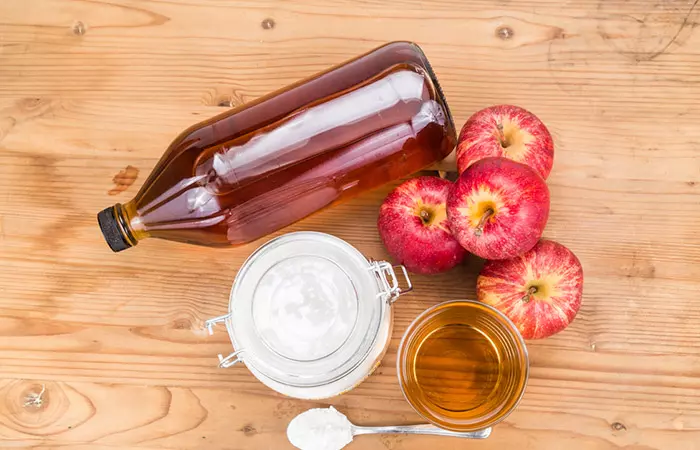
Ingredients
- 2 tablespoons apple cider vinegar (organic)
- 3 tablespoons baking soda
Preparation
Mix the baking soda with apple cider vinegar in a small bowl.
How To Apply
- Apply the mask to the affected area.
- Leave it on for 20 minutes and then wash it off.
- Follow it up with a moisturizer.
How It Works
Baking soda may help in drying the acne and reduce inflammation.
Precaution
Baking soda doesn’t suit all skin types. If you have sensitive skin, do a patch test. Stop using it in case you experience itching and skin inflammation.
3. Apple Cider Vinegar Scrub
Ingredients
- 1 teaspoon apple cider vinegar
- 1 teaspoon honey
- 1 teaspoon green tea
- 5 teaspoons sugar (don’t use fine sugar)
- ½ cup water
Preparation
- Boil the green tea and strain the water. Let it cool down.
- Add water and apple cider vinegar to the water.
- Add honey and sugar. Mix well.
How To Apply
- Use cotton pads or your fingers to apply the pack to your face (or just the affected area).
- Massage gently and leave it on to dry.
- Wash it off with water.
How It Works
The vitamins, amino acids, and enzymes give honey anti-inflammatory, antioxidant, and antimicrobial properties that may help to keep your skin healthy and prevent acne (11). These qualities make honey for acne an effective natural remedy. Also, skin exfoliation helps remove dead skin cells, and improve skin texture and skin tone.
4. Apple Cider Vinegar Overnight Pimple Treatment
Ingredients
- 2 tablespoons apple cider vinegar
- 1 cup filtered water
Preparation
Mix the vinegar in water and store it in a jar or spray bottle.
How To Apply
- Soak a cotton pad in the mixture.
- Apply it directly to the pimple (not on the entire face).
- You can spray it on the affected area (in case the pimples cover a large area of your face).
- Leave it on overnight and wash your face in the morning.
How It Works
The acids in apple cider vinegar dry the pimple out and its antibacterial property helps kill the bacteria causing it. It also helps in restoring skin pH balance.
5. Apple Cider Vinegar Facial Steam
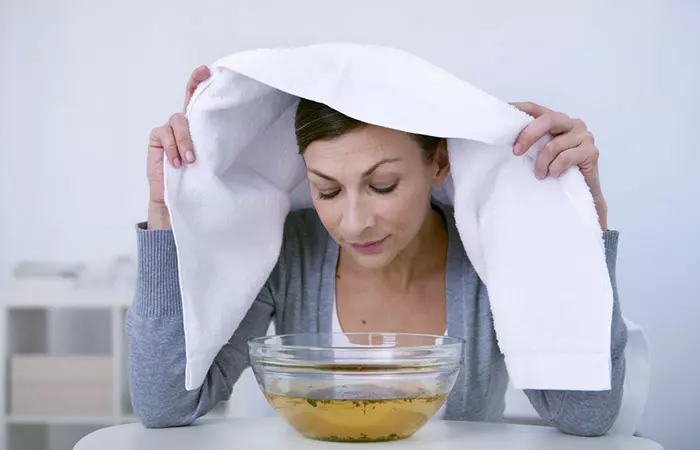
Ingredients
- 2 cups water
- 4 tablespoons apple cider vinegar
- 2-3 drops of any essential oil
Preparation
- Add the apple cider vinegar to the water and heat it (until it starts emanating steam).
- Transfer the liquid to another bowl and add tea tree oil.
How To Apply
Bend over the bowl and cover your head with a towel.
How It Works
The steam helps open up the pores and clears them of excess oil and dirt. This helps with sebum regulation which helps in pimple prevention and in skin detoxification.
Precaution
Keep your eyes closed while steaming your face. Do not bring your face too close to the bowl/water.
How To Drink Apple Cider Vinegar For Acne
There is no evidence to prove that drinking ACV can speed up acne healing, but it has other health benefits. It may help reduce body weight and assist in reducing obesity-related diabetes, hypertension, and other issues (1).
Usually, 1-2 tablespoons of ACV mixed in water or any other drinks should be fine. However, it is always better to consult a doctor for the daily dosage. Some people may experience side effects (acid reflux and nauseai An uneasy sensation in your stomach that can cause an urge to vomit but doesn’t always lead to vomiting. ) after drinking ACV. Visit the doctor immediately if you experience any side effects.
Here are a few recipes:
1. Apple Cider Vinegar And Lemon Drink
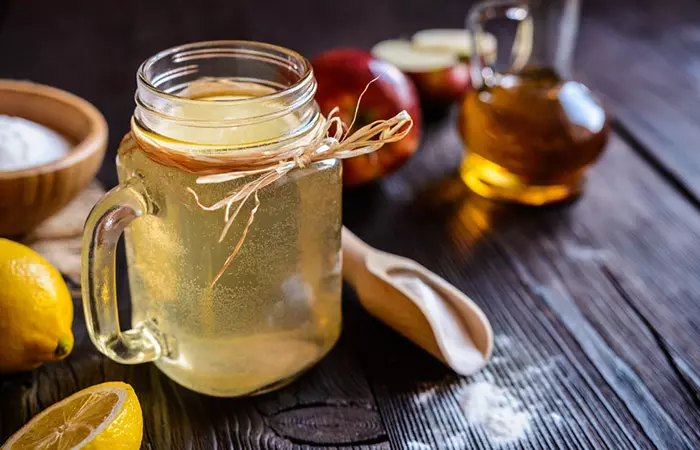
Ingredients
- 1 tablespoon apple cider vinegar
- 1 tablespoon lemon juice
- 1 cup water
- ½ teaspoon cinnamon powder
- A pinch of cayenne pepper
- 1 teaspoon honey
Method
- Mix all the ingredients, and your detox drink is ready!
- You can add more honey if you want.
2. Apple Cider Vinegar And Fuji Apple Smoothie
Ingredients
- 1 tablespoon apple cider vinegar
- 1 cup peeled and sliced Fuji apples
- ¼ cup water
- 2 tablespoons avocado
- ¼ cup ice
Method
Blend all the ingredients. Serve chilled.
3. Apple Cider Vinegar And Green Tea Detox Drink
Ingredients
- 1 tablespoon apple cider vinegar
- 1 cup green tea
- 1 teaspoon honey
- Ice (optional)
Method
- Prepare the green tea and allow it to cool.
- Add the green tea, apple cider vinegar, and honey to a glass and mix well.
- Add ice if needed.
4. Apple Cider Vinegar And Cinnamon Drink

Ingredients
- 2 tablespoons apple cider vinegar
- 2 cinnamon sticks
- 1 ½ cups water
- 4 cloves
- 2 tablespoons honey
- Lemon slice (for garnishing)
Method
- Add the cinnamon sticks and cloves to a bowl of water and boil it.
- Let it cool and then add apple cider vinegar and honey.
- Garnish with the lemon slice.
5. Apple Cider Vinegar And Mixed Berries Drink
Ingredients
- 2 tablespoons apple cider vinegar
- 1 cup frozen mixed berries
- 1 banana
- 1 cup almond milk
- A pinch of salt
Method
- Blend all the ingredients, and your drink is ready!
- You can add another cup or half cup of almond milk in case the consistency is too thick for you (or add the milk gradually to adjust the consistency).
These are the tips and tricks to use apple cider vinegar for treating acne. But how do you know if the ACV you have is the right one? Scroll down to find out.
 Did You Know?
Did You Know?How To Choose The Best Apple Cider Vinegar For Acne
- The ordinary vinegar meant for cooking purposes should not be used for topical use.
- Check for the “organic” label. Always buy organic apple cider vinegar as it is unfiltered and unpasteurized. The organic kind has a muddy, grainy brown sediment (the mother) and contains enzymesi Biological catalysts in the body that boost metabolism by accelerating chemical reactions. and essential bacteria that are beneficial for the skin. Organic apple cider vinegar has skin-nourishing nutrients like alpha hydroxy acids, vitamin C, and minerals.
- It is always better to go for raw apple cider vinegar. It has no artificial flavors and chemicals to make it taste better and contains healthy bacteria. The regular apple cider vinegar is processed and filtered, which robs it of its natural goodness.
- Never buy apple cider vinegar that comes in a plastic bottle. Plastics contain harmful chemicals that can react with the vinegar. Go for a glass bottle instead.
Infographic: 4 Tips For Buying The Right Apple Cider Vinegar To Prevent Acne
While apple cider vinegar (ACV) is known for helping in weight management and improving gut health, it has also become one of the most popular skin care remedies. It can help combat various strains of bacteria, and users have claimed its effectiveness in dealing with acne and related inflammation as well. But, with the hundred brands of ACV out there, how do you choose the right kind for your skin? Check the infographic below for some solid tips.
Some thing wrong with infographic shortcode. please verify shortcode syntaxApple cider vinegar may not help to minimize acne. However, it may help reduce inflammation and soothe the skin, thereby easing the redness, swelling, and pain associated with acne. While you may follow the recipes discussed in the article, if you want to use apple cider vinegar for acne, it is best to consult a doctor for a proper diagnosis. Also, do a patch test before using apple cider vinegar to avoid the risk of skin irritation and allergies reaction. Remember that trying home remedies for occasional breakouts is fine as long as the ingredient suits your skin. However, if the issue persists for over a month, consult a doctor immediately.
Frequently Asked Questions
What exactly is the “mother”?
The mother is the sediment that you see floating or settled in the bottom of the bottle of the apple cider vinegar. It contains healthy bacteria that detoxify your system and make your skin glow.
Does ACV have an expiry date?
Yes, it has. You can see it mentioned in the bottle. After that date, the quality of the vinegar deteriorates, and it may not be as powerful as it was earlier.
Can ACV burn the skin?
ACV is highly acidic, and it can burn your skin and cause irritation if you apply it directly. Always dilute ACV before using it. Also, never consume raw apple cider vinegar.
How long does it take for apple cider vinegar to work on acne?
It may take 6 weeks to show results. If you do not see any result after 6 weeks, consult your doctor and change your treatment method.
How to store apple cider vinegar?
Away from sunlight, in a cool and dry place.
How long should I leave apple cider vinegar on my face?
This depends on your skin type. Individuals with normal skin can leave it for between 15 to 20 minutes. Those with sensitive skin should not leave it for more than five minutes as it might irritate their skin.
Illustration: How To Use Apple Cider Vinegar For Acne & Things To Consider
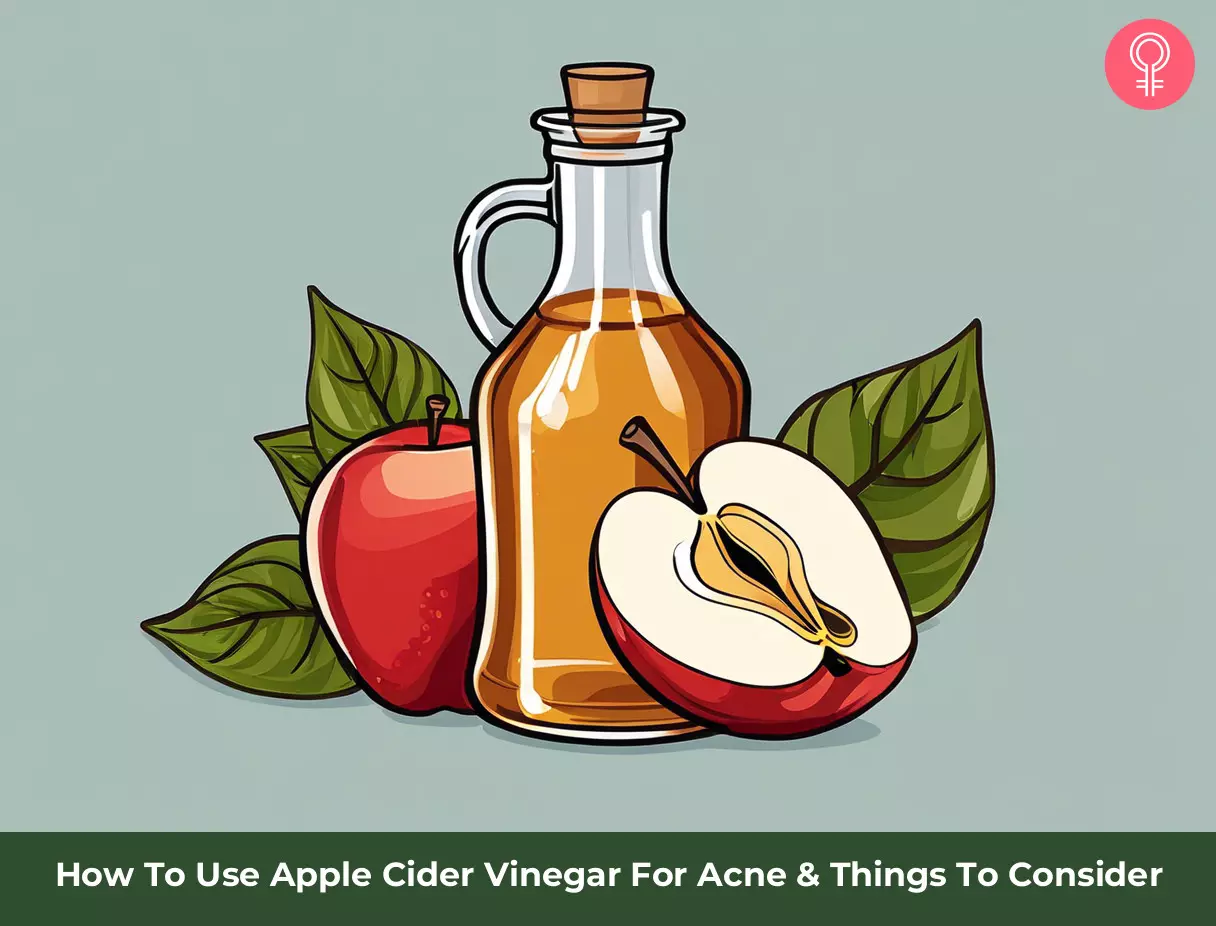
Image: Stable Diffusion/StyleCraze Design Team
Are you wondering if apple cider vinegar can help clear inflamed acne lesions? Is it good for your skin? Watch this video to find out!
Personal Experience: Source
StyleCraze's articles are interwoven with authentic personal narratives that provide depth and resonance to our content. Below are the sources of the personal accounts referenced in this article.
i. Apple cider vinegar cleared my acne | Grace Jenningshttps://www.youtube.com/watch?v=CKfLpr05ZN0
References
Articles on StyleCraze are backed by verified information from peer-reviewed and academic research papers, reputed organizations, research institutions, and medical associations to ensure accuracy and relevance. Read our editorial policy to learn more.
- Vinegar Intake Reduces Body Weight, Body Fat Mass, and Serum Triglyceride Levels in Obese Japanese Subjects, Bioscience, Biotechnology, and Biochemistry, Taylor & Francis Online.
https://www.tandfonline.com/doi/pdf/10.1271/bbb.90231 - Evaluation of antimicrobial activities of ZnO, citric acid and a mixture of both against Propionibacterium acnes. International Journal of Cosmetic Sciences, US National Library of Medicine, National Institutes of Health.
https://pubmed.ncbi.nlm.nih.gov/26940755/ - Staphylococcus epidermidis in the human skin microbiome mediates fermentation to inhibit the growth of Propionibacterium acnes: implications of probiotics in acne vulgaris. Applied Microbiology and Biotechnology, US National Library of Medicine, National Institutes of Health.
https://pubmed.ncbi.nlm.nih.gov/24265031/ - Vinegar: Medicinal Uses and Antiglycemic Effect, Medscape General Medicine, US National Library of Medicine, National Institutes of Health.
https://www.ncbi.nlm.nih.gov/pmc/articles/PMC1785201/ - Long term topical application of lactic acid/lactate lotion as a preventive treatment for acne vulgaris., Indian Journal of Dermatology, Venereology, and Leprology, US National Library of Medicine, National Institutes of Health.
https://pubmed.ncbi.nlm.nih.gov/17656910/ - Staphylococcus epidermidis in the human skin microbiome mediates fermentation to inhibit the growth of Propionibacterium acnes: Implications of probiotics in acne vulgaris, Applied Microbiology Biotechnology, US National Library of Medicine, National Institutes of Health.
https://www.ncbi.nlm.nih.gov/pmc/articles/PMC3888247/ - Lactic acid peeling in superficial acne scarring in Indian skin. Journal of Cosmetic Dermatology, US Library of Medicine, National Institutes of Health.
https://pubmed.ncbi.nlm.nih.gov/20883299/ - [Use of organic acids in acne and skin discolorations therapy]. Postępy higieny i medycyny doświadczalnej, US Library of Medicine, National Institutes of Health.
https://pubmed.ncbi.nlm.nih.gov/25811473/ - Functional Properties of Vinegar
https://ift.onlinelibrary.wiley.com/doi/10.1111/1750-3841.12434 - Aloe Vera: A Short Review, Indian Journal of Dermatology, US National Library of Medicine, National Institutes of Health.
https://www.ncbi.nlm.nih.gov/pmc/articles/PMC2763764/ - Medicinal and cosmetic uses of Bee’s Honey – A review, Ayu, US National Library of Medicine, National Institutes of Health.
https://www.ncbi.nlm.nih.gov/pmc/articles/PMC3611628/
Read full bio of Vd. Naveen Sharma
Read full bio of Ramona Sinha
Read full bio of Eshna Das
Read full bio of Krati Darak





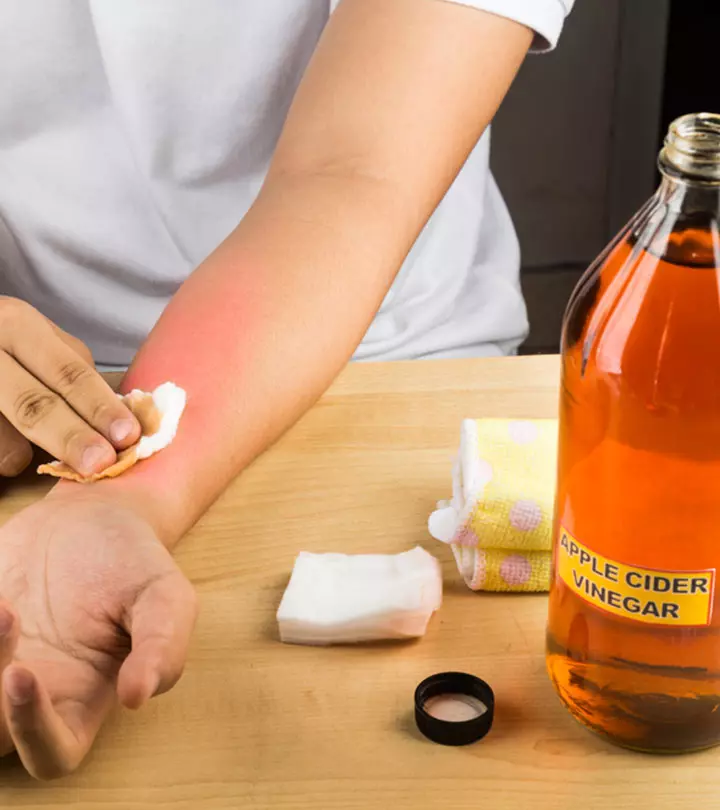
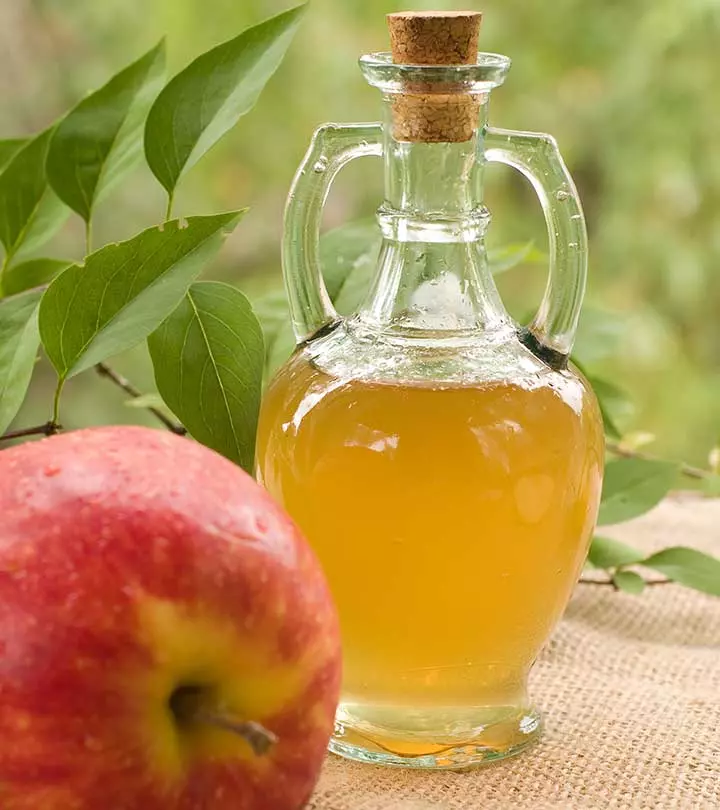


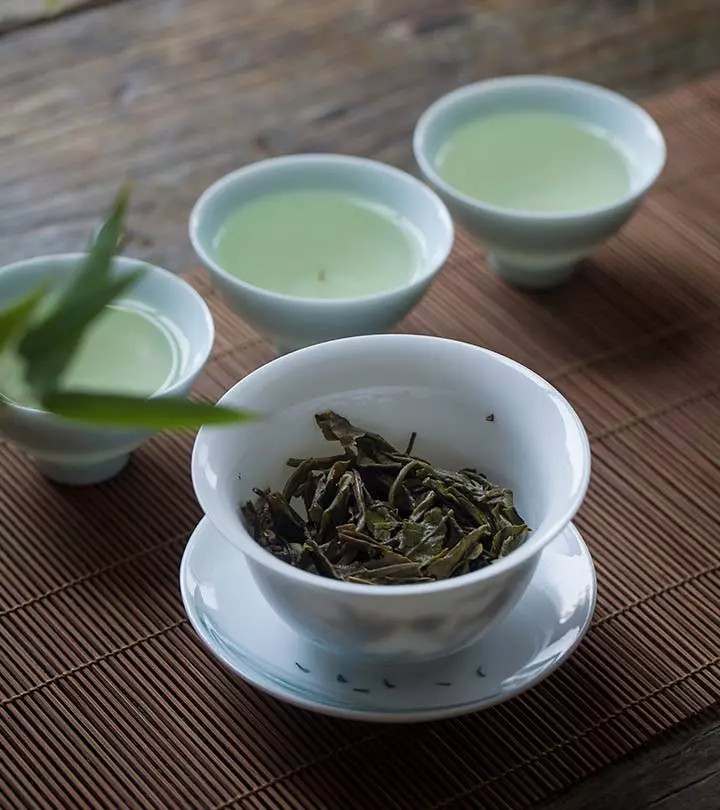
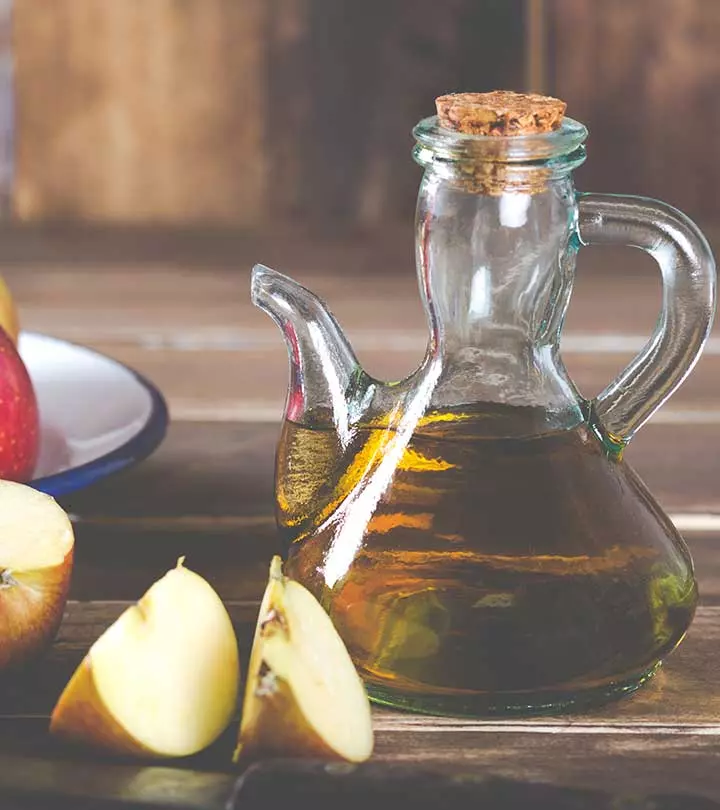

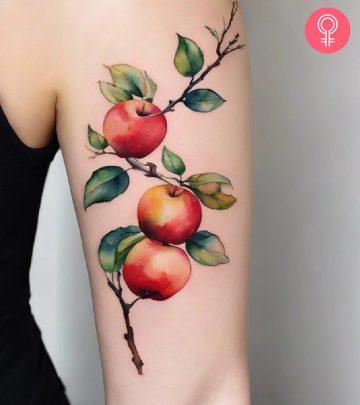

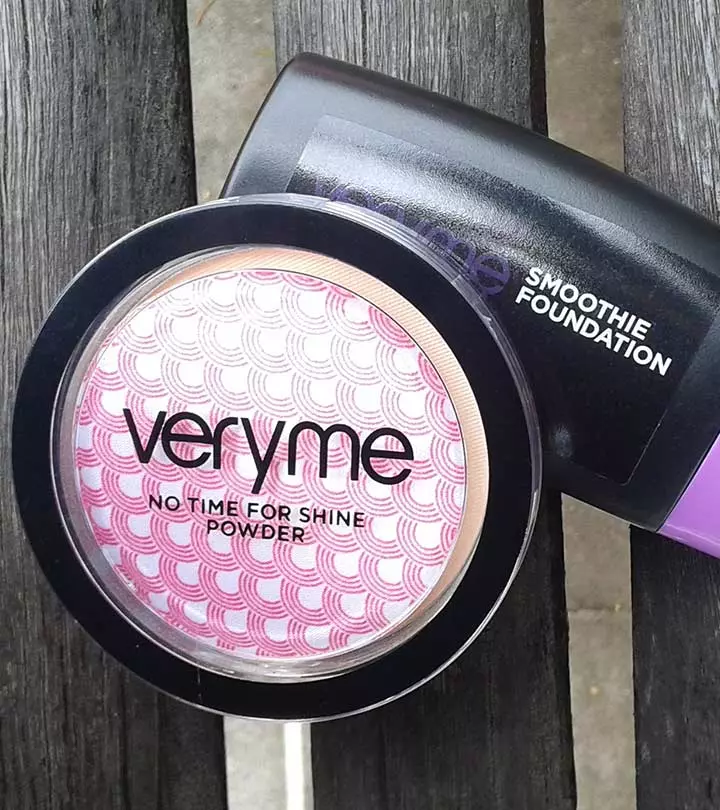
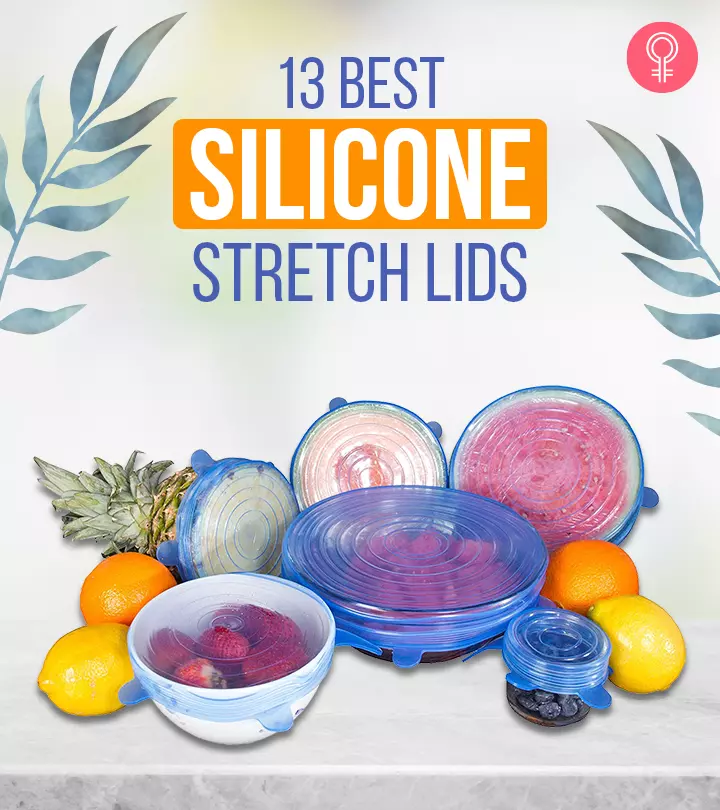

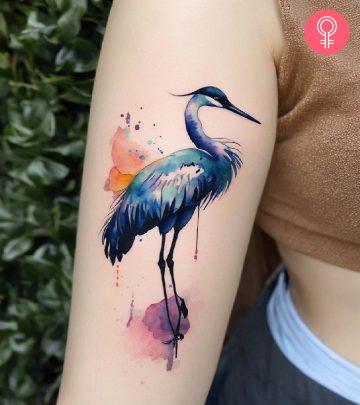



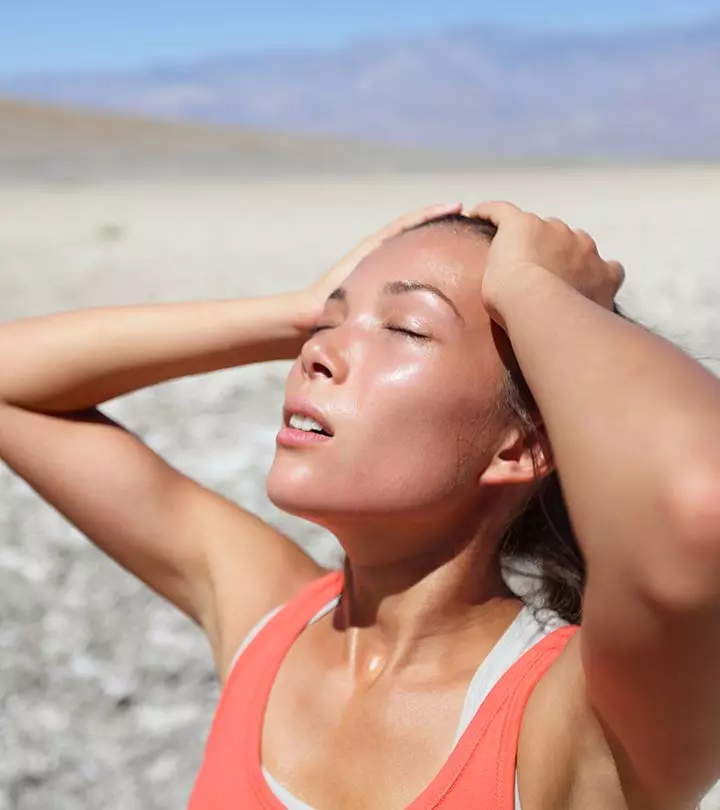

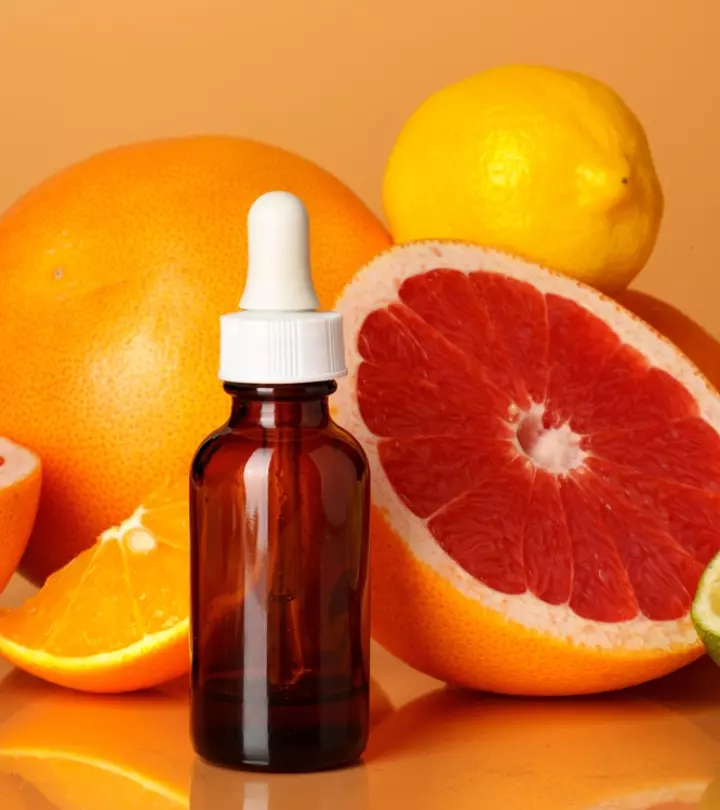

Community Experiences
Join the conversation and become a part of our empowering community! Share your stories, experiences, and insights to connect with other beauty, lifestyle, and health enthusiasts.